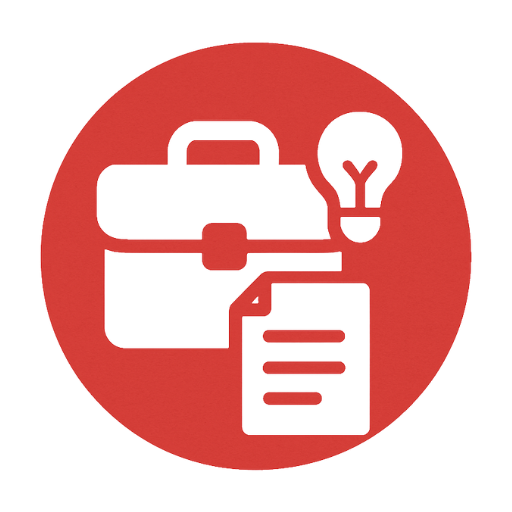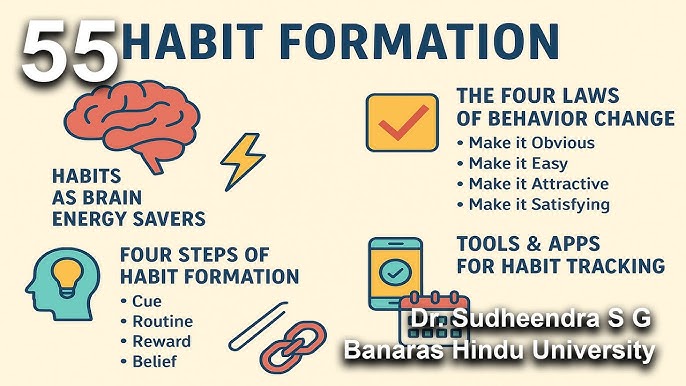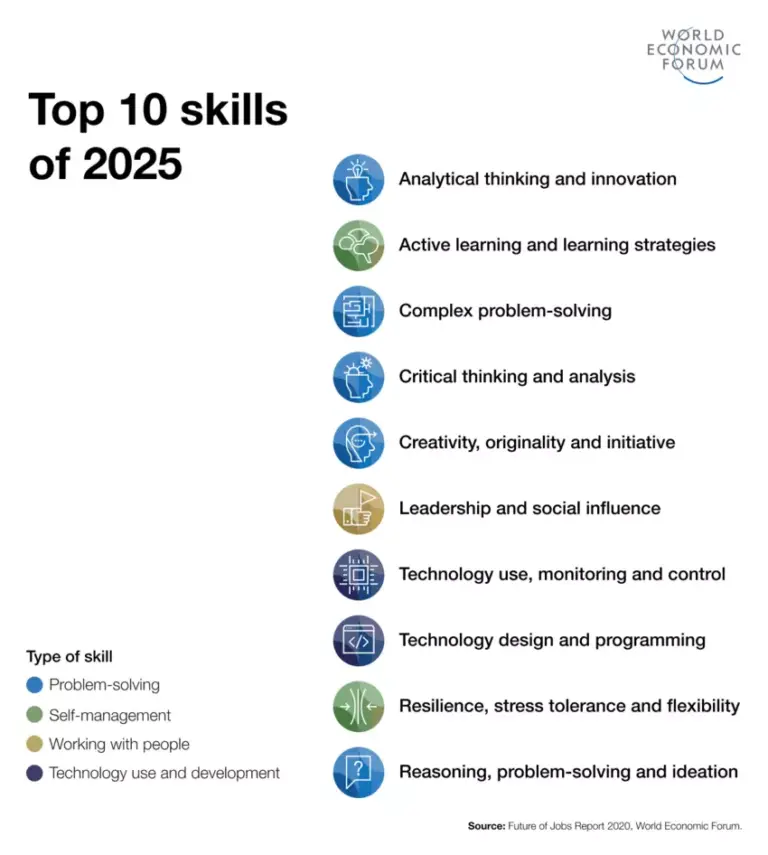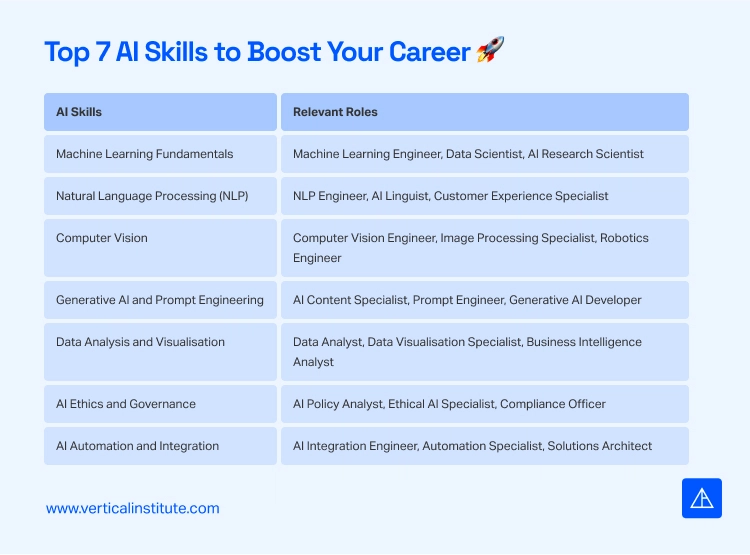Essential Digital Skills For Professionals In The Modern Workplace
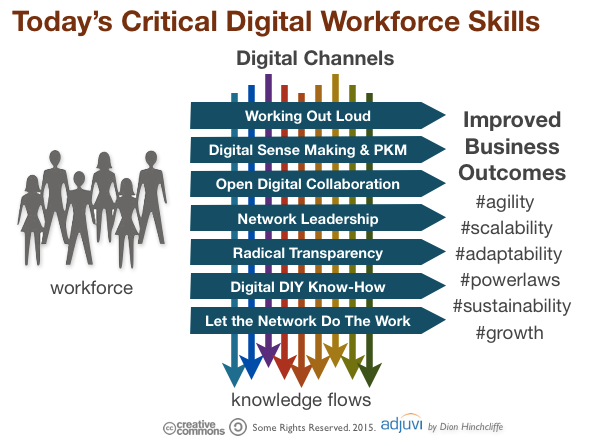
Twenty years ago, learning to use a typewriter was considered a prized asset in the office. Today, professionals are expected to master an array of digital tools to stay competitive. From managing complex tasks through project management software to conducting virtual meetings, digital fluency has become the backbone of modern workspaces.
Since the dawn of the information age, the landscape of workplace skills has transformed dramatically. Statistics reveal that over 90% of jobs now require at least some digital skills. Proficiency in cloud computing, data analytics, and cybersecurity are no longer optional but essential, aligning perfectly with emerging trends and business needs.

Essential Digital Skills for Professionals in the Modern Workplace
Digital skills are crucial for every professional today. These skills range from basic computer knowledge to advanced data analysis. As tasks become more digitized, understanding the tools available helps boost productivity. According to the article this post, organizations expect employees to adapt quickly to new technologies. This makes continuous learning a key part of any career.
Communication tools like email, instant messaging, and video conferencing have become essential. They facilitate remote work and global collaboration. Many companies now rely on cloud-based platforms for real-time communication and project management. Additionally, these tools enhance team coordination and efficiency.
- Data analytics helps businesses make informed decisions.
- Cybersecurity knowledge protects company information.
- Social media skills can enhance a company’s online presence.
These are just a few examples of the necessary skills. Learning these can significantly impact a professional’s career growth.
Continual skill development is crucial in the ever-changing digital landscape. Online courses and certifications are readily available for various digital tools. This allows professionals to stay current with industry standards. According to here is the article, investing time in learning new skills can open up career opportunities. Therefore, committing to lifelong learning is imperative for career success.
The Role of Digital Literacy in Career Advancement
Digital literacy plays a pivotal role in career advancement. Professionals with strong digital skills are more likely to be promoted. Understanding how to navigate various digital tools can make employees more efficient. For instance, knowing how to utilize data analysis can lead to better decision-making. This skill set is highly valued by employers.
Digital literacy also opens doors to new job opportunities. Many industries now require proficiency in digital technologies. Companies seek candidates who can easily adapt to digital workflows. As a result, those with digital skills often have a competitive edge. They find it easier to transition between roles within their fields.
Essential digital skills for career growth include:
- Proficient use of Microsoft Office Suite
- Competence in digital marketing tools
- Knowledge of project management software
These abilities enhance productivity and problem-solving. They are critical for professionals aiming to move up the career ladder.
Continuous learning is important for maintaining digital literacy. Online courses, webinars, and workshops offer valuable learning opportunities. Staying updated with the latest technologies ensures you remain relevant. According to [this post](URL), investing in digital literacy can lead to higher job satisfaction. Ultimately, it paves the way for a successful career.
Types of Skills That Enhance Productivity and Efficiency
Tech-savvy professionals find that specific digital skills greatly improve their work efficiency. One of the most valuable skills is proficiency in spreadsheet software like Microsoft Excel. This tool helps in organizing data, performing calculations, and creating charts. It allows users to quickly find insights and make data-driven decisions. Mastery of Excel can turn hours of manual work into minutes.
Project management skills also play a vital role. Tools like Trello and Asana help in tracking tasks and deadlines. They enable teams to collaborate efficiently, keeping everyone on the same page. Visualization tools such as Gantt charts can be incredibly helpful here. They present timelines and help prevent project bottlenecks.
Communication tools are equally important for productivity. Mastery of platforms like Slack, Zoom, and Microsoft Teams is essential. These tools facilitate instant messaging, video calls, and file sharing.
- Slack
- Zoom
- Microsoft Teams
They keep team members connected, regardless of their physical location. Efficient communication reduces misunderstandings and accelerates project completion.
Finally, understanding basic coding can be a game-changer. Skills in languages like Python or SQL enhance problem-solving abilities. They enable automation of repetitive tasks, saving valuable time. According to the article here is the post, coding for data analysis is especially useful. Such skills can significantly boost both productivity and efficiency in the workplace.
Tools and Platforms That Are Must-Haves for Every Professional
Many professionals rely on office suites for their everyday tasks. Microsoft Office and Google Workspace are among the most popular. These tools offer word processing, spreadsheets, and presentation software. They are essential for creating reports, analyzing data, and sharing information. Their cloud capabilities make collaboration seamless and efficient.
For project management, tools like Trello and Asana are invaluable. These platforms help organize tasks and track progress. With features like boards, timelines, and task assignments, they improve team collaboration. According to this post, these tools help in prioritizing tasks and meeting deadlines. This organization boosts productivity significantly.
Communication tools are a must for any professional. Platforms like Slack, Zoom, and Microsoft Teams facilitate quick conversations and meetings. They support chat, video calls, and file sharing. This connectivity is crucial, especially for remote teams. Efficient communication tools reduce misunderstandings and speed up project timelines.
Data management and analysis tools are also essential. Software like Excel, Google Sheets, and Tableau enable professionals to handle large datasets. They help in creating charts, generating reports, and deriving insights. With these tools, data becomes actionable information. This capability is crucial for making informed business decisions.
Cybersecurity tools are vital for protecting sensitive information. Antivirus software, firewalls, and VPNs help secure data from unauthorized access. In a world where cyber threats are common, these tools are necessary to maintain data integrity. They provide a layer of protection against potential data breaches. Professionals must prioritize security to safeguard their work.
- Microsoft Office and Google Workspace
- Trello and Asana
- Slack, Zoom, and Microsoft Teams
- Excel, Google Sheets, and Tableau
- Antivirus software and VPNs
Using these tools enhances efficiency and ensures that work processes are smooth and secure. Embracing these must-have platforms is essential for any modern professional.
Ways to Develop and Refine Necessary Digital Skills
One effective way to develop digital skills is through online courses. Websites like Coursera, Udemy, and Khan Academy offer a range of classes. These cover topics from basic computer literacy to advanced programming. Many courses are self-paced and can be done in your own time. This flexibility is great for busy professionals.
Participating in webinars and workshops can also be beneficial. These events often feature expert speakers and hands-on activities. Attendees can ask questions and engage in discussions. This interactive format helps in understanding complex concepts. Plus, it provides networking opportunities with other learners.
- Join online forums and communities
- Engage in peer learning
- Share knowledge and resources
These platforms allow you to learn from others’ experiences. They also keep you updated on industry trends.
Practicing new skills regularly is equally important. Setting aside time each week for practice can reinforce learning. Real-life application helps in mastering tools and techniques. According to this post, regular practice turns lessons into habits. This makes skills more natural and intuitive over time.
Finally, staying curious and proactive is key. Reading articles, watching tutorials, and experimenting with new tools fosters growth. The digital world is always evolving, so staying updated is necessary. Professionals who continuously seek knowledge remain ahead in their careers. This approach ensures they never fall behind.
Impact of Digital Skills on Team Collaboration and Remote Work
Digital skills significantly enhance team collaboration. Tools like Slack and Microsoft Teams streamline communication. These platforms allow team members to chat, share files, and keep everyone in the loop. Real-time collaboration is possible, even when members are miles apart. This leads to faster decision-making and more efficient workflows.
Remote work has been made easier by digital tools. Video conferencing software like Zoom and Google Meet enable face-to-face interactions. These tools keep teams connected and engaged. According to the article, video calls reduce feelings of isolation and strengthen team bonds. This technology supports a healthy remote work environment.
Project management tools play a crucial role in remote work. Platforms like Asana and Trello help in tracking progress and managing tasks. They provide a clear overview of what needs to be done and by whom. This transparency reduces confusion and ensures everyone is on the same page. Projects are completed on time and to a high standard.
Cloud storage solutions are vital for teamwork. Services like Google Drive and Dropbox offer secure file sharing. Teams can access documents anytime, anywhere. This level of access is essential for remote workers. It also ensures that important files are never lost.
- Slack for communication
- Zoom for video calls
- Asana for project management
- Google Drive for cloud storage
These tools enhance team collaboration and support remote work. Mastery of these digital skills is crucial for modern professionals.
Moreover, strong digital skills foster innovation. Team members who are comfortable with technology can explore new ways to solve problems. This leads to creative solutions and improved project outcomes. Embracing digital tools opens up endless possibilities. Teams become more adaptable and innovative.
Future Trends in Digital Skills Requirements
The future of work will demand even more advanced digital skills. Artificial Intelligence (AI) and Machine Learning (ML) are expected to be at the forefront. Knowledge in these fields can enhance data analysis and automation. Many industries will seek professionals who can implement AI-driven solutions. This shift will create new job opportunities.
Cybersecurity skills will also become increasingly important. With more businesses operating online, protecting digital assets is crucial. Understanding how to detect and prevent cyber threats will be a valuable asset. Professionals with cybersecurity expertise will be highly sought after. Demand for these skills is likely to grow.
- Proficiency in AI and ML
- Advanced cybersecurity knowledge
- Understanding blockchain technology
These emerging skills are paving the way for the future workplace. Staying updated with these trends is essential for career growth.
Beyond technical skills, digital communication abilities will continue to evolve. Tools like augmented reality (AR) and virtual reality (VR) could transform how teams collaborate remotely. These technologies create immersive experiences that bridge distance gaps. As AR and VR become more mainstream, proficiency in using them could become critical.
Sustainability-related tech skills are also on the rise. Companies are looking for ways to reduce their environmental impact through technology. Professionals skilled in green IT practices or energy-efficient systems will stand out. Such expertise aligns with growing global sustainability goals.
The focus on continuous learning remains vital amidst these changes. Online platforms offer courses tailored to these emerging trends.According to here is this post, lifelong learning equips professionals with the necessary tools to navigate future challenges successfully.
Strategies for Keeping Skills Updated in an Evolving Digital Era
One of the most effective ways to keep skills updated is by subscribing to online learning platforms. Websites like Coursera, LinkedIn Learning, and Udemy offer a variety of courses. They cover both basic and advanced digital skills. These platforms provide the flexibility to learn at your own pace. Regularly updating your knowledge keeps you competitive in the job market.
Joining professional networks can also be beneficial. Platforms like LinkedIn allow for connections with industry experts. These networks often share the latest trends and skills in the digital world. Such interactions keep you informed about new developments. Engaging with these communities can lead to valuable insights.
- Attend industry conferences and webinars
- Read industry-specific blogs and articles
- Subscribe to tech-focused newsletters
These activities help in staying ahead of the curve. Continuous engagement with industry news updates your skill set.
Practical experience is crucial for maintaining relevant skills. Working on real-life projects allows for hands-on practice. Applying new skills in a practical context solidifies your knowledge. According to this post, real-world applications make learning more impactful. This approach ensures you are well-prepared for any workplace challenges.
Mentorship and peer learning are also powerful tools. Learning from colleagues or mentors provides different perspectives. Peer interactions can highlight skills that you might have overlooked. Collaborating with others fosters a culture of continuous learning. This teamwork approach benefits everyone involved.
Scheduling regular self-assessments helps track progress. Set goals and review them periodically to measure improvement. These assessments can identify areas needing attention. Adjusting your learning plan based on these assessments keeps your skills current. This proactive approach ensures continuous growth.
Key Takeaways
- Know how to use Microsoft Office and Google Workspace.
- Learn the basics of data analysis and cybersecurity.
- Use project management tools like Trello or Asana.
- Stay good at communication platforms like Slack or Zoom.
- Always keep learning to stay updated with new tech.

Conclusion
In today’s digital age, it’s crucial for professionals to master essential digital skills to stay competitive. These skills not only enhance productivity but also open up new career opportunities. Continuous learning and adapting to new technologies are key to professional growth.
By embracing digital tools and platforms, teams can collaborate more effectively, even when working remotely. The impact of digital skills on career advancement and team efficiency cannot be overstated. Investing time in learning and refining these skills is a smart move for any professional.
